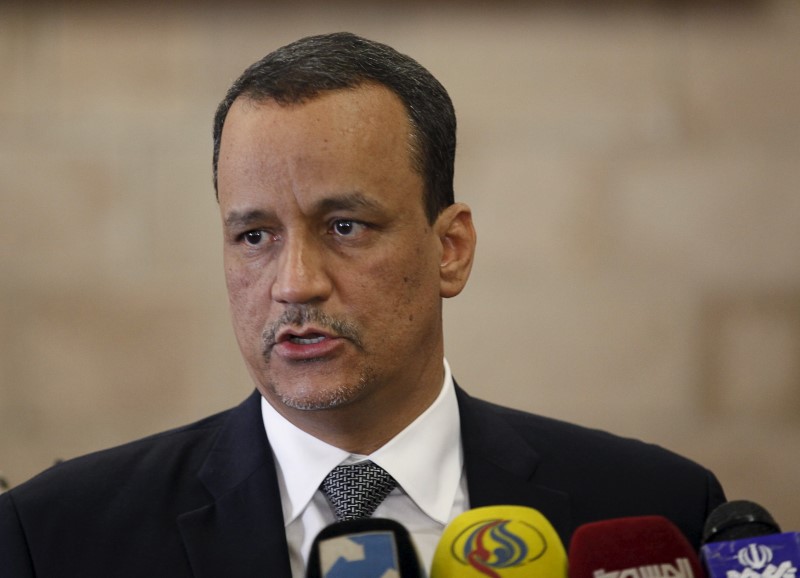By Michelle Nichols
UNITED NATIONS (Reuters) - The United Nations special envoy for Yemen said on Wednesday he was unable to call another round of peace talks because the warring parties are deeply divided over whether there should be a ceasefire to coincide with a new round of negotiations.
During the first round of talks in Geneva in December, the parties agreed on a broad framework for ending their war but a temporary one-week truce was widely violated. A second round of talks was set for Jan. 14, but has been indefinitely postponed.
"Deep divisions persist that prevent me from calling for the next round of talks," U.N. Yemen envoy Ismail Ould Cheikh Ahmed told the U.N. Security Council. "I have not, unfortunately, received sufficient assurances that a new cessation of hostilities, should I call for one, would be respected."
"We cannot delay these talks, in my view, beyond the month of March," he told reporters after the briefing.
A Saudi Arabia-led coalition began a military campaign in March to prevent Iran-allied Houthi rebels and forces loyal to former Yemen President Ali Abdullah Saleh, from taking complete control of Yemen.
The United Nations said more than 6,000 people had been killed in the past year, of which about half were civilians.
U.N. sanctions monitors said in a report last month that the Saudi-led coalition and the Houthi rebels have targeted civilians and that some of the attacks could be a crimes against humanity.
"Yemen has suffered greatly, and its people have withstood an unspeakable tragedy," Ould Cheikh Ahmed said.
"The country's infrastructure is destroyed; families dispersed, and its social fabric torn apart. This is a critical and most difficult phase. With every passing day, more and more Yemeni lives are lost," he said.
Ould Cheikh Ahmed called on the Security Council to help push for a recommitment by the parties to a cessation of hostilities leading to a permanent ceasefire.

U.N. aid chief Stephen O'Brien told the Security Council on Tuesday that the Saudi-led coalition and Houthi rebels are both restricting humanitarian aid access in the impoverished country where more than 80 percent of people need help.